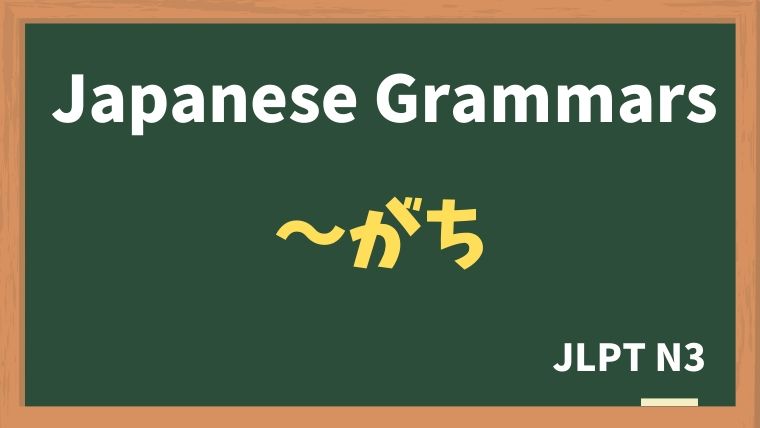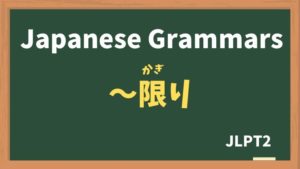
Explanation:〜がち
fa-check-circleMeaning
"よく〜する / よく〜になる / 〜する傾向にある"
よくない意味で使います
"apt to / liable to/ tend to"
Used to describe a tendency to do something frequently, often in a negative or undesirable way. It indicates that a certain action or state happens often or is likely to occur.
fa-check-circleForm
V(masu form)ます + がち
N + がち
fa-check-circlePoints
- Indicates a Tendency: "〜がち" is used to express that someone tends to do something often. This tendency is usually seen as negative or problematic.
- Often Used with Negative Contexts: The expression is commonly associated with actions or states that are considered undesirable or that should be avoided.
- Attached to Verbs and Nouns: "〜がち" can be attached to verbs (in their stem form) or nouns to describe this tendency.
fa-check-circleJLPT Level
N3
Sample sentenes
最近、トムさん学校を休みがちだけど、大丈夫かなあ。
Tom has been taking a lot of days off from school lately. I wonder if he's okay.
ジェームスさん、最近学校を遅刻しがちですよ。
James you have been prone to being late for school lately.
一人暮らしの男性は、肉料理ばかり食べて、野菜を不足しがちだ。
Single men living alone tend to eat mainly meat dishes and often lack vegetables.
毎日、車で通勤しているので、運動不足になりがちだ。
James, you've been tardy to school a lot lately.
最近、便秘がちだ。
Lately, I've been prone to constipation.
マイケルさんは病気がちで、よく学校を休む。
Michael tends to be sickly and often misses school.
私は風邪を引きがちです。
I tend to catch colds easily.
この時期は曇りがちです。
It tends to be cloudy during this season.
Vocabulary
| Japanese |
English | |
| 不足する | ふそくする | to lack |
| 通勤する | つうきんする | to commute |
| 便秘 | べんぴ | constipation |








